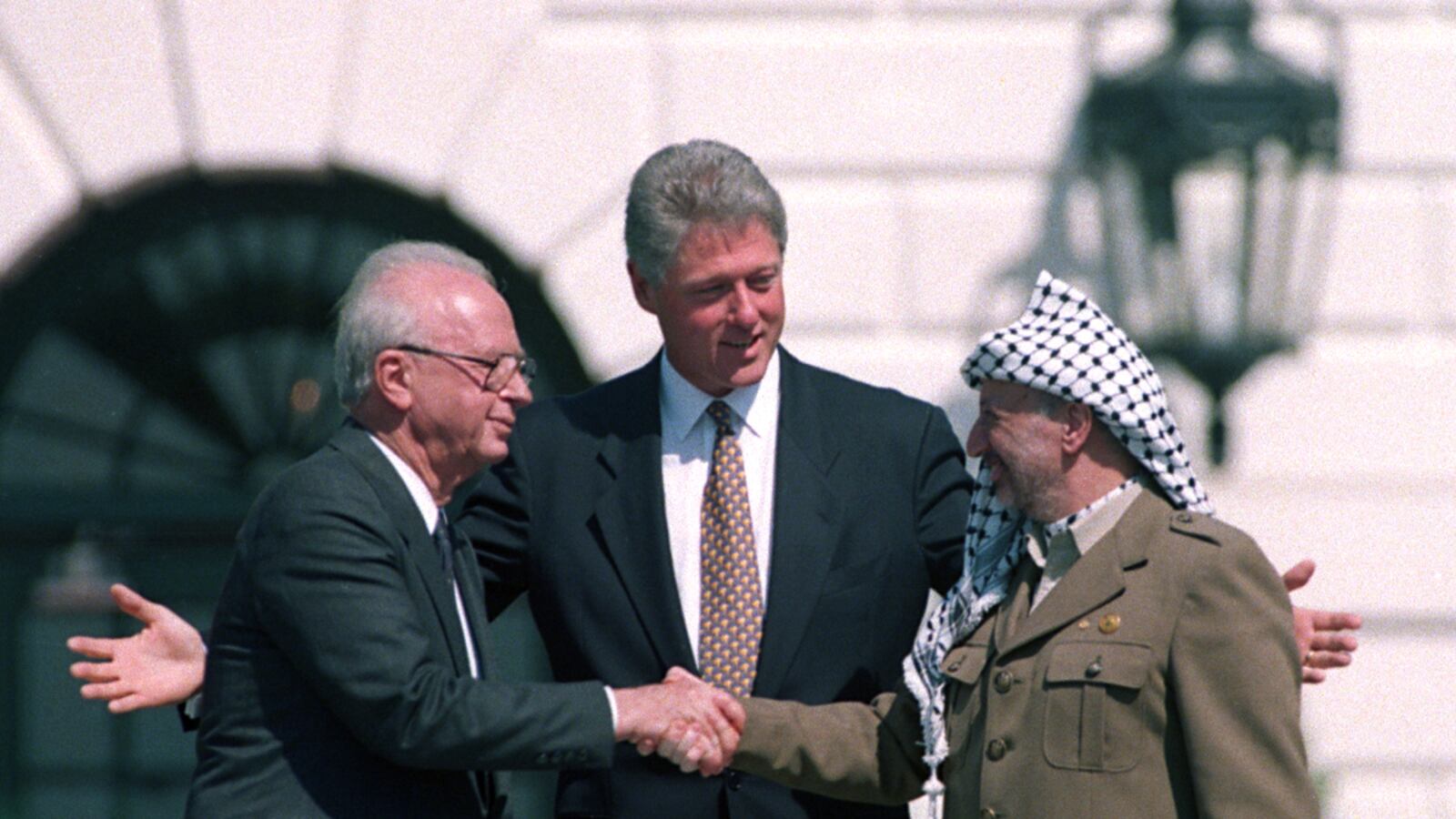Fatah just celebrated its 48th birthday. The dominant PLO faction is perhaps most responsible for cultivating a Palestinian national consciousness and selling it to the world. In the process, though, it has addicted the Palestinian political culture to a cult of violence and nihilism that has helped block the emergence of a functioning independent State of Palestine—even if Mahmoud Abbas starts calling the entity that he partially governs with an expired mandate the State of Palestine.

Some of the guerilla movements that began emerging in the 1950s merged together into the PLO, the Palestine Liberation Organization, in 1964. The PLO’s main strike force would be al-Fatah, whose first attack targeted Israel’s National Water Carrier in January, 1965, the event that it is now celebrating. The historian, Rashid Khalidi, cautions against an oversimplification that claims the Palestinian national consciousness only emerged in the 1960s. Khalidi traces Palestinian nationalism back to the 1920s. Despite that, though, Palestinians were dispirited and divided after 1948, and it was the 1960s that became the movement’s defining decade.
In the 60s, Palestinian nationalists tried to universalize their struggle. Article 22 of the PLO covenant called Zionism “a political movement organically associated with international imperialism and antagonistic to all action for liberation and to progressive movements in the world.”
The Palestinian leaders understood the potency of playing to third world, post-colonial solidarity, pitching their movement as yet another national liberation movement. Exploiting the rise of a global mass media, and what Professor Edward Said called the twentieth century’s “generalizing tendency,” the Palestinians transcended their local narrative of woe, framing it as part of a global struggle. They invested heavily in research centers, think tanks, publishing houses to tell their story—and link it to broader trends. And all this started before the Six Day War of 1967, which shows that Palestinian nationalism and Palestinian enmity toward Israel run deeper than “the settlements” and desire for the post-1967 territories.
The Six Day War, of course, traumatized the Palestinians. Their leaders had joined the warmongering chorus that raised expectations that the Arab armies united under Egypt’s Gamel Abdul Nasser would annihilate Israel. The PLO’s founder, Ahmad al-Shuqayri, predicted Israel’s “complete destruction,” expecting that there “will be practically no Jewish survivors.”
Israel’s triumph stirred its enemies profoundly. The Palestinians emerged more galvanized—and more popular in a world increasingly inclined to sympathize with the underdog, especially when the conflict could be cast as people of color under the yoke of Western whites. Disappointed by the Arab states’ failures and disillusioned by Pan-Arabism as their hope for salvation, Palestinian leaders became more autonomous and more aggressive.
They also became angrier with the growing number of Palestinians under Israeli rule, along with the fact that the Palestinians in the West Bank and Gaza Strip were in a legal limbo; they were not citizens like their Israeli Arabs cousins within the “Green Line,” the original 1949 Armistice borders. Israel never annexed the West Bank or Gaza Strip, though it did eventually annex East Jerusalem and the Golan Heights. “Israel became an occupying power … not simply a Jewish state,” the Palestinian intellectual, Professor Edward Said, would note. But it became an easier target.
The Palestinian national movement mastered its dual-track strategy, trying to defeat Israel through a combination of terrorist attacks and assaults on its legitimacy, wrapped in the modern rhetoric of national liberation. Under the leadership of the charming and ruthless Arafat, the Palestinians hijacked, kidnapped, and bombed their way into the world’s agenda. As the chairman of the PLO, and as fighter and propagandist, Arafat mastered the two sides of the terrorists’ sword, wherein violence could be justified in an increasingly polarized and relativistic world—when the violence came with the right message.
Thus Fatah’s great successes and great failures became intertwined. Terrorism brought internal pride and international standing while feeding a political culture steeped in violence, a yearning to destroy Israel at its core. Despite the world’s hopes and Bill Clinton’s repeated pleas throughout the Oslo Peace Process of the 1990s, Arafat could not move himself or his people from terrorism toward statesmanship, from targeting Israel to building Palestine. And in 2012, even as the General Assembly was poised to upgrade the Palestinian Authority’s status, Arafat’s successor, Mahmoud Abbas, could not give a Palestinian “I have a dream” speech, and he instead felt compelled to demonize Israel with the nihilistic, delegitimizing language many of his people now crave—accusing it of racism, apartheid, and ethnic cleansing.
Birthdays can be moments of contemplation, reexamination, and reinvention. Palestinians and their progressive enablers need to become liberated from the simplistic, one-sided reading of the conflict that only blames Israel. If they can move toward more humility, more self-criticism, less nihilism, less violence, the peace process could indeed be revived. It could become a vehicle for mutual compromise, helping to fulfill the Palestinian nationalist aspirations that Fatah so successfully stirred.






